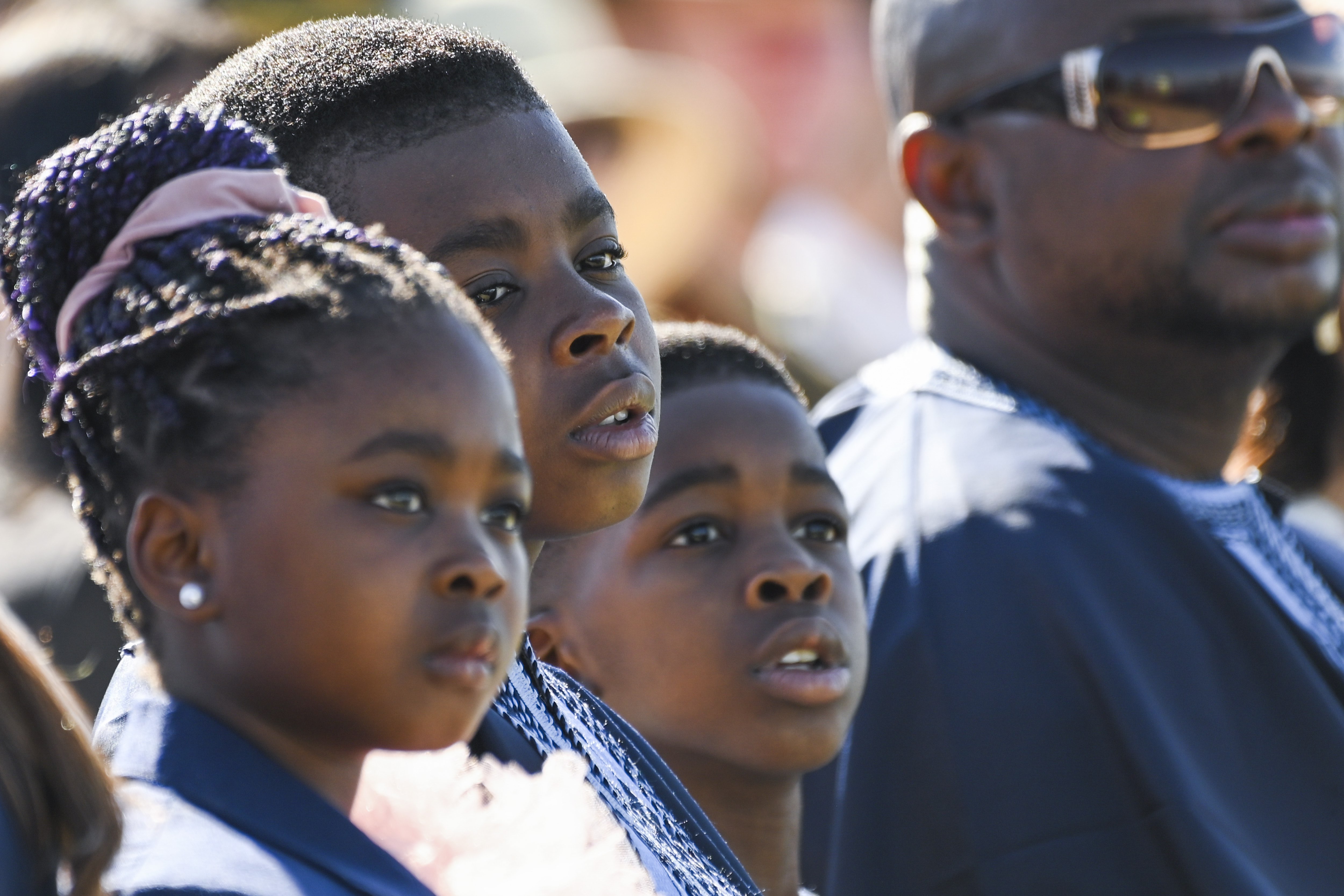
Health & Medicine
Sport and that sense of belonging

Young African Australians facing mental health issues need culturally appropriate support to fulfil their potential
Published 28 February 2023
Australia is one of many destination countries for people relocating from the continent of Africa.
Some of these people are moving because of conflict, war, poverty, or the hope of a better life here. And many of these emigrants arrive with their children, wards or even grandchildren – young people who may have seen or experienced things no parent or caregiver would wish their child to live thorough.

Other young African people – which we define as aged between 15 and 29 – arrive here alone.
Some young people have seen their parents subjected to torture and trauma. They may have witnessed displacement, conflict or been forced to flee their home country. Some may have lived in refugee camps with the stress and fears of an unknown or uncertain future.
The impact of these experiences can be devastating on the mental wellbeing and potential of these young people.

Health & Medicine
Sport and that sense of belonging
Research has found that African Australian migrants are at ten times higher risk of experiencing mental health issues compared to the general population.
The main risk factors associated with the African Australian young people’s mental health include resettlement, cultural transition, racial discrimination, separation from extended family members and stigmatisation of mental health issues due to cultural beliefs.
But unemployment, financial difficulties and access to social support services can also tremendously impact on mental health causing even more stress, depression and anxiety about the future.
The knock-on effect is an increase in the risk of engaging in delinquent behaviours – specifically excessive consumption of alcohol and substance abuse to cope with mental health problems.

These are just some of the current difficult issues facing young people from African Australian community groups.
But to help solve the problem, we first need to understand it.
There are calls for appropriate mental health research to be carried out within the African Australian community to explore better ways to address mental health and wellbeing.
By understanding the mental health issues of young African Australians, we can work toward addressing some factors that are known to contribute to a high level of mental health issues.

Politics & Society
What’s it like to be young and from overseas in Australia?
Some African Australians have experienced post-migration difficulties when it comes to adjustment and adaption to unfamiliar systems and social networks – this can include access to education.
Some young African Australian people, particularly those with refugee backgrounds, may have witnessed the death of loved ones (including their parents) while fleeing their country of origin. Those young people may have travelled with guardians or a family member that was fleeing the country.
The loss and separation of family can lead to psychological distress and, unsurprisingly, have a long-term impact on young people – contributing to mental health issues like stress, depression, anxiety, panic attacks and post-traumatic stress disorders (PSTD).

In addition to the very real loss of family, some young people can also feel a loss of cultural systems and social capital.
When a person loses a social connection and sense of belonging they are more likely to lose their sense of meaning of life, self-worth and ability to focus on meaningful activities and interaction with others.
Young people that experienced childhood trauma as a result of what they witnessed are likely to struggle with more mental health issues.

Politics & Society
Mapping Australia’s multicultural future
This has the potential to significantly hamper the capacity of African Australian young people to maximise their full potential in life – trapping them in the vicious cycle of poverty and mental health issues.
Despite the prevalence of mental health issues, African Australian young people are often reluctant to access mental health services. The reasons for this are numerous – it may be related to an unfamiliarity with the health care system, language barriers, affordability or a lack of understanding of available mental health support.
Access to any social service is an essential part of improving the overall health of the population. The same is true for mental health.

Mental health services for African Australian young people and families must improve.
At a professional level, those working in mental health should work together to tackle the challenges preventing the African Australian community from seeking help. Social workers, welfare workers, youth workers and community support workers familiar with these issues can all help identify and provide appropriate interventions and support services.
From a social work practice and social policy level, African Australian young people and their parents need be sensitised to the importance of supporting young people within the community to access mental health services and to destigmatise individuals experiencing mental health problems.

There’s also a need for holistic team approaches and promotion of mental health service providers like social workers, psychiatrists, psychologists, youth workers and other case managers. These providers need to work together to increase the availability of mental health services to African Australian young people.
In addition, local churches and educational centres can work together to raise community awareness, destigmatise mental health problems and encourage young people and their families to support each other to access mental health services.
Young people from other cultures and communities that recognise the importance of awareness raising events like World Mental Health Day can help to motivate African Australian youth to participate – enabling education about mental health issues, including the impact of untreated mental health problems.

These approaches are not a solution, but would help to alter misconceptions of mental health issues among the African Australian youth.
At a policy level, there must be increased contact between policy makers and African Australian community leaders to understand, address and resolve any opportunities to better serve African Australian young people experiencing mental health issues.
Culturally and linguistically diverse (CALD) health services in Australia must be strengthened with more resourcing, particularly in mental health services. This could include policy makers implementing and funding prevention programs within the African Australian community to ensure a competent capacity and quality of services.

Family is one of the most important support systems for our young people, as a source of emotional support that acts as a powerful factor to prevent risky behaviours while promoting resilience.
Equally, some cultural beliefs may influence a family’s support, If the family has negative social perceptions of mental health, it may result in a young person living with the burden of undiagnosed mental health issues without early intervention and treatment.
As a community, African Australian families must support their young people, encouraging them to seek professional help for mental health problems without being stigmatised.

Awareness is required to alter the cultural perceptions of mental health issues and encourage those seeking mental health services.
Only by understanding some of the barriers preventing young African Australians from getting help for their mental health will we help the next generation of young people reach their full potential in life.
Banner: Getty Images